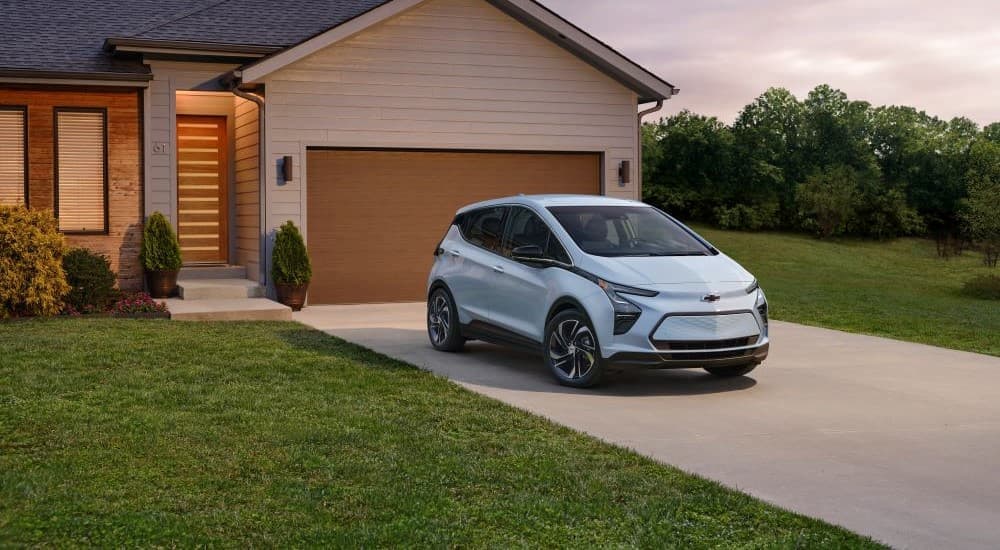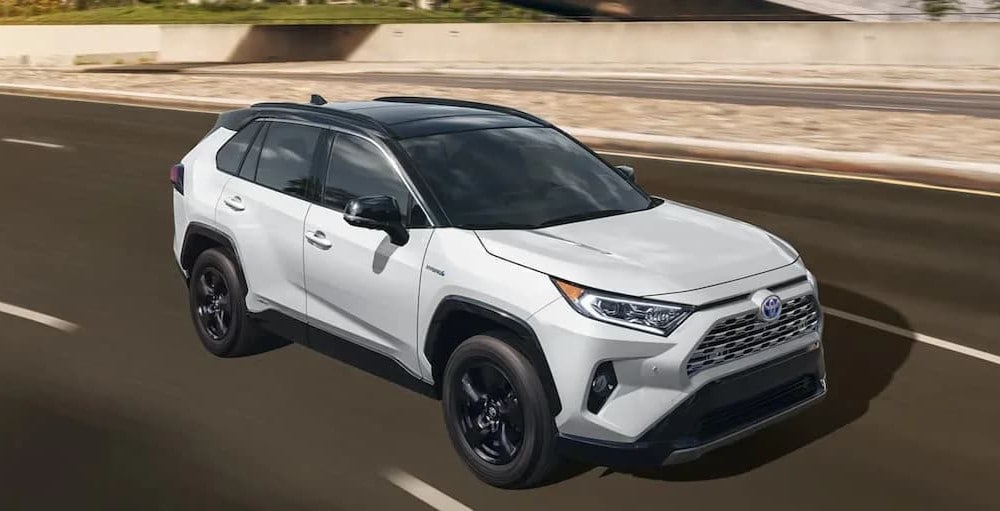
Is a used hybrid SUV the right choice for you? That's a great question that might not be easy to answer since it depends on various factors, many of which only you can fully determine, but we can help you get there by looking at what you should consider while exploring your options. As you look at different used SUVs for sale, it often helps to have a good sense of direction regarding what you need from your next vehicle so you quickly know if something might work for you. Otherwise, it's easy to become lost in a sea of options with too many available options.
You'll need to consider factors like how large of a vehicle will fit into your life, how much seating you need inside, and how much space you require to load up the stuff you need to bring. There are also different brands and manufacturers to consider, with pros and cons for each of them as you look for the right used SUV. Amidst all of this, it's easy for certain factors to get lost, like whether you should focus on models with hybrid engines. So, let's look at the perks that hybrids and plug-in hybrids have to offer so you can make an informed decision on what's right for you.
Basics First: What Are Hybrids and Plug-in Hybrids?
Before we look at the potential pros and cons of going with a hybrid to see if that's the right choice for you, let's briefly look at what makes these vehicles different. The defining characteristic of a hybrid vehicle is that it has a battery-powered motor along with a conventional gas-powered engine. This motor supplements the engine's power and lets power from the engine be used more effectively. Essentially, this motor takes some of the work off the engine's proverbial shoulders to focus on providing power where needed most as you drive.
There's also an option called a plug-in hybrid electric vehicle (PHEV), which lives up to its name by letting you plug it into an external source for power. This has a similar design with a battery-powered motor and gas engine, but the battery for the motor can be recharged by plugging it in like an all-electric vehicle. The advantages of this are that it can potentially be more powerful than the motor of a standard hybrid, and it allows for a limited all-electric range without touching the gas tank. So you can run some quick errands without using any gas and then recharge your SUV at night by plugging it in at home.

Hybrid Advantages: Fuel Efficiency
One of the biggest advantages of choosing a hybrid model is that it can be engineered for remarkable fuel efficiency. The battery-powered motor can generate energy for the vehicle's electrical systems or add some of its power to energy from the engine, which allows the engine to go further by using less power, enhancing how much you can drive on the same amount of gas. Not all vehicles are made with this as the focus, but a majority of hybrid SUVs tend to use this perk—SUVs aren't the most efficient vehicles, which this helps to offset.
Let's look at the 2021 Ford Escape, a compact SUV with standard engines and hybrid options, as an example of how big of a difference this can make. The starting engine for the Escape lets it go an estimated 28 MPG in the city and 34 MPG on the highway, which is already quite good for an SUV. However, that same 2021 Escape, with its available hybrid engine, gets an estimated 44 MPG in the city and 37 MPG on the highway. This is a massive difference, and you can see that it's particularly exceptional for city driving with a lot of starting and stopping—that's where hybrids thrive. A PHEV version of the 2021 Escape offers about 37 miles of electric range without using any gas, which is hard to beat.
Hybrid Advantages: Power and Performance
Hybrids can also have enhanced power and performance thanks to how they're designed. A battery-powered motor can take some of the work from the engine, boosting efficiency and adding to the engine to generate more power. This means an SUV with a hybrid engine might offer greater horsepower and/or torque than the same model with only a conventional engine, ensuring you have a fantastic time on the road. For example, the 2020 Toyota RAV4 has a standard 2.5L I-4 engine that offers 203 hp. Compared to that, the RAV4 Hybrid features a 2.5L I-4 hybrid engine that puts out 219 hp while getting an estimated 40 combined MPG in fuel efficiency over the standard gas engine's combined 30 MPG. That makes for a better daily drive that you'll enjoy while also letting you go further between stops for gas.
Hybrid Advantages: Wide Range of Models
One final perk worth noting with a hybrid SUV is that you have many more options than you might realize. A couple of decades ago, hybrid vehicles were niche options that few people cared to search out and buy. In recent years, however, hybrid SUVs' impressive performance and efficiency have seen them surge in popularity, so you'll find plenty of them when shopping for a pre-owned vehicle. Not only that, but many companies added them to their lineups as available engines for their vehicles. Whether you're interested in the Ford Escape, Toyota RAV4, Honda CR-V, or the three-row Toyota Highlander, you can find them with hybrid engines. There are even plug-in hybrid versions of the Jeep Wrangler from recent years that you can find used, giving you more options with fantastic performance and gas mileage.
Hybrid Drawbacks: Potential for Higher Price
Like most things in life, there are a few potential drawbacks you should consider when considering a pre-owned hybrid SUV. You might find hybrid models at a slightly higher price than comparable models with the standard engine. Hybrids tend to start a bit higher in price when sold as new; for example, the 2020 Toyota RAV4 LE had a starting price of just over $25,000, while the same year's RAV4 LE Hybrid started at about $29,000. That's not a huge difference, to be fair, and many factors affect the prices you'll find pre-owned models at, but it's something to consider.

Hybrid Drawbacks: Fewer Overall Options
Although we said you'll have a lot of options when looking at hybrid SUVs compared to what you might expect or would've found a decade or so ago, that doesn't mean you'll have infinite options. Looking at hybrid models limits and restricts what you'll find out there, just like focusing on any particular aspect of a vehicle. This typically won't be the end of the world during your search for a used SUV, but it's still worth keeping in mind. If you need a vehicle right now, searching for the perfect used hybrid SUV might not be as quick as you want.
Is a Hybrid SUV Best for You?
At the end of the day, we think the advantages outweigh the potential drawbacks when it comes to shopping for a pre-owned hybrid SUV. The fuel efficiency can't be beat, plus you can find great SUVs with plenty of power under the hood that you'll enjoy while staying on the road longer. Your driving habits will impact how much you get from these advantages, and hybrids are generally most advantageous for those of us who do a lot of city driving. That's why it's so important you shop with a dealership that will listen to you, understand your needs, and help you find the perfect vehicle. Whether you're certain you want a hybrid SUV or are still figuring things out, we're ready to help you explore your options and drive away in a used model you love.